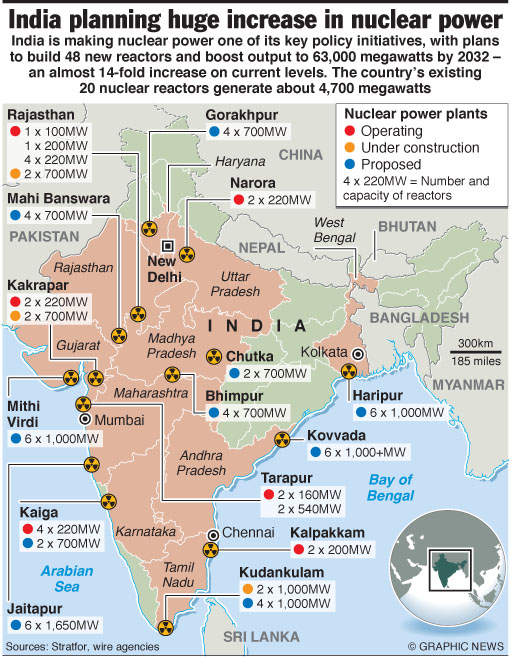NDA Govt's Cabinet has given its approval to the Civil Nuclear Cooperation Agreement with Australia on Wednesday Dec 30,2015
The Indo-Australian civil nuclear cooperation agreement was brought into force on November 13,2015 along with the administrative arrangement for implementing the accord.



The Indo-Australian civil nuclear cooperation agreement was brought into force on November 13,2015 along with the administrative arrangement for implementing the accord.
It
is a step toward India achieving international acceptability for its
nuclear programme despite not ratifying the nuclear non-proliferation
treaty. India, which has nuclear energy contributing just 3 % of
its electricity generation, will be the first country to buy Australian
uranium without being a signatory to the nuclear non-proliferation
treaty
In the year 2012, India and Australia began talks on the Civil
Nuclear Cooperation Agreement after Australia lifted a long-standing ban
on selling uranium to energy-starved India. Australia has about 40 per
cent of the world’s uranium reserves and exports nearly 7,000 tonnes of
yellow cake annually.
In 2014 India signed similar agreements with the US and France.
The
implementation of the civil nuclear cooperation agreement with the US
was put back on course when Prime Minister hosted President Obama in New
Delhi In January 2015 Civil nuclear cooperation with Russia and France has
also been taken forward during the year.
On December 22, 2015, during
Prime Minister’s visit to Russia, a Joint Programme of Action for
Localization of Manufacturing in India for Russian-designed Nuclear
Power Plants was signed.
India has less than two dozen small reactors at six sites with a
capacity of 4,780 MW, or 2 % of its total power capacity.
It
plans to increase its nuclear capacity to 63,000 MW by 2032 by adding
nearly 30 reactors at an estimated cost of $85 billion.

At present, India has nuclear energy agreements with 11 countries and imports uranium from France, Russia and Kazakhstan.
No comments:
Post a Comment